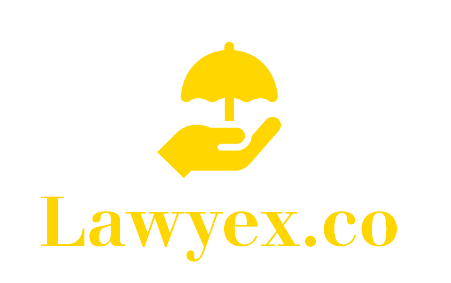Liability insurance is a type of coverage that helps protect small business owners and other organizations against lawsuits. Liability insurance protects businesses from legal liability in case they’re sued for damages or personal injury. If you’re in business, it’s important to have liability coverage because the cost of being sued can be enormous. This article explains what liability insurance is, its importance to your business, and how it works.
Liability insurance protects small businesses and other organizations against lawsuits seeking monetary damages.
Liability insurance is a type of coverage that protects businesses and other organizations against lawsuits seeking monetary damages. This can include protection from claims such as personal injury, property damage, or other types of losses resulting from negligence or wrongdoing on the part of the insured party.
Liability insurance can be purchased for individuals and businesses alike–and it’s important to note that there are many different types of policies available depending on what kind of lawsuit you’re looking to cover. For example: product liability insurance covers injuries caused by defective products; general liability covers injuries caused by negligence (such as slip-and-fall accidents); workers’ compensation provides benefits for employees who have been injured at work; business automotive coverage pays for vehicle repairs after an accident occurs while driving for work purposes
Importance of liability insurance for businesses
Liability insurance is a vital part of any business’s risk management strategy. The reason for this is simple: it protects your company from lawsuits by paying for any judgments against you or damages caused by your product or service.
Liability insurance protects businesses from lawsuits related to personal injury, property damage and other losses that may occur as a result of providing products or services to customers. In addition to protecting your business from lawsuits, liability coverage also helps cover defense costs if you’re sued by someone who claims they were injured or suffered some kind of loss due to something associated with your company (like an employee). Liability insurance can be obtained through either an individual policy or through group plans offered by professional associations like AIA New York State Association Insurance Trust (AIA).
Types of liability insurance coverage
There are a few main types of liability insurance coverage:
- General liability – This type of policy covers injuries or property damage caused by your business. It also covers legal fees if you’re sued for negligence, such as if an employee trips and falls on your premises.
- Professional indemnity – This type of policy protects professionals who provide services (such as doctors, lawyers and accountants) against lawsuits related to their work. In other words, if someone sues you for malpractice because they think you did something wrong while providing your service, this kind of policy will cover costs associated with defending yourself in court (and winning).
- Product liability – If someone gets hurt because of a product that was manufactured by your company or sold under its name, this type of policy will pay damages resulting from any injuries sustained as a result of using it improperly (e.g., ingesting an unhealthy food item).
General liability insurance
General liability insurance is a type of business insurance that protects you from lawsuits resulting from injuries and property damage. Liability insurance covers incidents such as car accidents caused by one of your employees, slip-and-falls in your store and even wrongful death suits.
When you think about it, there are tons of ways your business could be held liable for something: an employee who makes a mistake on the job; faulty equipment that breaks down; even natural disasters like hurricanes or floods that damage the building where you work (or worse). As such, general liability coverage is crucial for any company looking to protect its interests against potential lawsuits–especially those with large fleets of vehicles or employees working at multiple locations throughout town!
Professional liability insurance
Professional liability insurance (also called errors and omissions insurance) covers you against claims from clients, customers or other parties based on your professional services. Professional liability claims can arise when a client feels that they have suffered financial loss due to negligence or malpractice by an insured party. For example:
- A lawyer who fails to file their client’s tax return on time may be liable if the client loses money because of this mistake.
- An accountant who prepares an incorrect tax return could be sued for damages if it causes their client financial hardship later in life due to penalties and interest charges being higher than they should have been had the accountant prepared an accurate return in the first place
Product liability insurance
Product liability insurance is a type of commercial general liability policy that protects businesses from lawsuits filed by customers who are injured by products. If you sell products to the public, it’s essential that you have this coverage.
Product liability insurance covers the cost of defending against a lawsuit and compensating the injured party. For example, if someone buys your product and then gets hurt using it, they may sue you in court for damages related to their injuries and pain & suffering (emotional distress). Product liability insurance will cover all legal costs associated with defending yourself against these types of claims–including hiring an attorney or expert witnesses–as well as any monetary awards made against your company before they’re paid out by an insurer (known as “defense costs”).
Directors and officers liability insurance
Directors and officers liability insurance (D&O) protects the directors and officers of your company against claims that they have breached their fiduciary duty to their business, or committed some other act that has damaged the company. It helps to protect them from personal liability for these actions as well.
The main purpose of D&O is to provide protection against lawsuits brought by shareholders or creditors against directors or officers who may be held personally responsible for decisions made on behalf of the company. This type of coverage can be especially important if you are an entrepreneur who has started your own business without much experience in managing others; without it, any mistakes you make could land you with hefty legal fees–or even worse!
Is liability insurance only for businesses?
It’s not just for businesses.
Liability insurance is often associated with business and corporate entities, but it can also be used as personal protection against lawsuits. If you are an individual who regularly deals with others, then liability insurance is an important consideration for your future financial security.
In the event that someone sues you because they feel they were harmed by something you did or failed to do, liability insurance will cover their legal fees if they win their case against you. In addition, this type of coverage protects your assets so that no one can take them away from you in order to pay off a judgment against them in court (or even simply sue).
The most common types of liability claims are due to negligence or accidents.
Liability claims are a common type of lawsuit, and they can be filed against any business or individual. The most common types of liability claims are due to negligence or accidents.
Liability is defined as the responsibility for causing harm to others as a result of your actions or inaction. In legal terms, this means that you may be held liable for any injuries sustained by another person if it’s found that your actions were negligent (meaning careless), dangerous and/or caused an accident that resulted in injury or damage. Negligence can include injuries caused by accidents such as:
- Poor workmanship on construction sites;
- Unsafe conditions on construction sites;
Selecting the right coverage
The first step in purchasing liability insurance is to determine what type of coverage you need. You can do this by asking yourself some basic questions:
- What kind of business am I running?
- What’s the potential risk if something goes wrong?
- Do I have enough assets to cover any damages that may occur as a result of any lawsuits?
If you answered “yes” to all three questions above, then you might be ready for some liability coverage! Next up: understanding what types of policies are available and how much coverage they provide. Your policy will likely include a list of terms and conditions that spell out exactly what your policy covers (and doesn’t). Make sure these terms match what’s on your mind before signing up for anything–you don’t want surprises once something goes south! Finally, check out how much money each company offers per incident versus annual limits; this way, if there ends up being more than one lawsuit against us within one year period we won’t run out funds before getting paid back by our insurer(s).
Examples of incidents covered by liability insurance
As you can see, there is a lot of coverage. Liability insurance covers a wide range of incidents and can be tailored to your specific business needs.
You may be thinking that this sounds like a lot of money for something that might not happen to me, but think about it this way: if something does happen, wouldn’t you rather have the protection?
Benefits of liability insurance for businesses
Liability insurance is one of the most important types of coverage to have. It protects your business from lawsuits, which can be devastating to your finances and reputation. Liability insurance covers injuries to employees and customers, accidents that happen on your property, and accidents that happen because of your products.
If a member of your business injures someone else, they can sue you for damages and compensation.
If a member of your business injures someone else, they can sue you for damages and compensation. Liability insurance protects businesses from lawsuits in the event that employees cause an accident on the job or through negligence.
Liability coverage is a type of coverage that protects the insured against claims of negligence. For example: If an employee hits someone with their car while driving for work purposes, this would be covered under liability insurance because it falls under “bodily injury” or “property damage.” Liability policies will usually cover both intentional acts (like assaulting someone) and unintentional acts (like slipping on ice). The most common types of claims that come up include:
- Negligence – This means failing to exercise reasonable care in doing something; it may also mean acting without due care or foresight when dealing with others’ property (e.g., accidentally breaking something)
- Product liability – If you manufacture products that cause damage when used as intended (e., brakes fail while braking), then anyone who uses those products could sue you
Reasons to keep liability insurance up to date
If you’re a business owner, it’s important to keep your liability insurance up to date. Liability insurance covers the costs of legal fees and settlements resulting from lawsuits. It can also cover damages or expenses that result from accidents on your property and injuries caused by employees or customers.
Liability insurance coverage is required by law in most states, so if you don’t have it yet–or if yours is expired–then get it now!
If you’re in business, you need to have liability coverage.
If you’re in business, liability insurance is a must. Liability coverage helps protect your company from lawsuits and allows you to recover from them if they do happen.
This type of insurance doesn’t just protect large companies; it’s also required for many small businesses and organizations–and it can be surprisingly affordable.
Liability insurance helps protect your business from lawsuits.
Liability insurance helps protect your business from lawsuits. It covers the cost of defending a lawsuit, as well as paying out damages in a lawsuit. Liability insurance also protects you from legal fees and paying out damages to anyone who has been injured on your property or because of something that happened at work.
Steps to take when faced with a lawsuit
If you are faced with a lawsuit, here are some steps you can take:
- Make sure that your business has the right kind of insurance.
- Document everything. If it’s a criminal case, don’t talk to the police or the insurance company without your lawyer present. If it’s a civil case (which means it involves money), don’t talk to any representatives from either side without your lawyer present.
- For any kind of legal matter, get help from an experienced attorney who knows how to handle such situations successfully!
Working with your insurance provider
Working with your insurance provider is one of the best ways to protect your business from liability lawsuits. Your insurance provider can help you develop a risk management plan and prepare for the worst-case scenarios, such as an employee injury or property damage. Insurance providers also offer guidance on how to handle claims, including negotiating settlements and avoiding lawsuits altogether. If a claim does arise, they’ll be there to provide legal defense services if necessary.
If you’re interested in learning more about liability insurance options that fit your needs as an entrepreneur, contact us today!
Importance of documenting incidents
Documenting incidents is an important part of your risk management plan. It helps you to identify areas of risk, areas of improvement and the costs associated with these risks. In addition to helping you make decisions about whether or not to get insurance coverage, documenting incidents will also help if there is ever an insurance claim filed against your business.
Documentation should include details about what happened, who was involved and how it was resolved (if at all). This way, if someone were to sue over something related to this incident, there would be no question about what happened and why it happened as well as any measures taken by the company afterward (such as training).
Creating a risk management plan
In order to create a risk management plan, you need to identify the potential risks that could affect your business. You also need to assess the level of each risk and develop strategies for managing them. For example, if there is a possibility that customers will get injured while using your products or services, then you should consider purchasing liability insurance for businesses so that in case someone does get hurt while using one of your products or services and files suit against you as a result, your business will be covered financially by this type of insurance policy (see below).
You may be wondering what kinds of things fall under “liability insurance” coverage? The answer is just about anything! For example:
- Personal injury claims resulting from accidents caused by employees working at their jobs (i.e., slip-and-fall accidents)
- Property damage caused by faulty products sold by businesses
If any of these scenarios sound familiar–then chances are good that some kind of liability coverage would benefit both yourself personally AND professionally!
Conducting regular risk assessments
When you’re conducting a risk assessment, it’s important to identify all potential hazards. To do this, you should use a checklist and ask yourself the following questions:
- What are the risks?
- How likely is each risk to happen?
- How severe will an incident be if it does happen (e.g., loss of business revenue)?
Conclusion
Liability insurance is an essential part of running a business. It can protect you from lawsuits and ensure that your company stays financially healthy. The best way to ensure that your business has adequate coverage is by working with an experienced insurance provider who understands the risks involved in every industry.



Average Rating